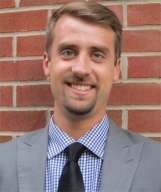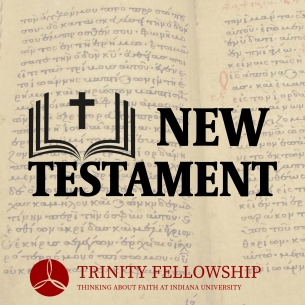 I ran across an article in Wired recently that suggested we have reached “Peak Indifference” to climate change – a phrase that “refers to the psychology of problems that become too big to ignore.” According to proponents, the number, severity, and relative proximity of several climate-related disasters has forced people to take notice (think wildfires, flooding, severe hurricanes). A couple of polls lend credence to the claim that we’ve turned the corner on indifference. One poll shows that the number of Republicans who believe climate change is real rose from 49% three years ago to 64% this past December. More widely, another survey shows that say the number who say they are “very worried” about climate jump jumped from 21% to 29% in one year.
I ran across an article in Wired recently that suggested we have reached “Peak Indifference” to climate change – a phrase that “refers to the psychology of problems that become too big to ignore.” According to proponents, the number, severity, and relative proximity of several climate-related disasters has forced people to take notice (think wildfires, flooding, severe hurricanes). A couple of polls lend credence to the claim that we’ve turned the corner on indifference. One poll shows that the number of Republicans who believe climate change is real rose from 49% three years ago to 64% this past December. More widely, another survey shows that say the number who say they are “very worried” about climate jump jumped from 21% to 29% in one year.
There is still, however, significant disagreement among those who believe climate change is real and are worried about. Some doubt whether humans are to blame for climate change or if it is part of a natural cycle. Some seem to have given in to a nihilistic apathy, thinking it’s too late to do anything about it.
How is a Christian to think about these things? Does the gospel say anything that has bearing on the condition of the earth, present, and future? Does the good news of Jesus call us to action in this area, or only soul winning?
Kyle-Meyaard Schaap, National Spokesperson for Young Evangelicals for Climate Action, will be lecturing on this topic on April 3rd, 7:30pm. The lecture, “Creation Care, Climate Change, and the Gospel” will be followed by a panel discussion/Q&A time. We hope this will be the beginning of some great future conversations. The lecture will be hosted at Evangelical Community Church, 503 S. High Street, Bloomington, IN, 47404.

 I am currently re-reading a fantastic book by Lesslie Newbigin, The Gospel in a Pluralistic Society. The book has little to say directly about creation care or climate change, but Newbigin’s insights do apply to the conversation. In a chapter entitled “The Bible as Universal History” he traces how history has been written and taught since the time of Augustine. Since Augustine, history has been taught as the progress of the City of God. Secular revisions watered it down into a vague ‘progress of society’; communists morphed it into the progress of the working class, etc. All of these visions looked hopefully towards the future. But, Newbigin contends (writing in the late twentieth century), “In the closing decades of this century it is difficult to find Europeans who have any belief in a significant future which is worth working for and investing in.” In the early decades of the twenty-first century, this bleak outlook and apathy have spread to the U.S. also. Newbigin continues,
I am currently re-reading a fantastic book by Lesslie Newbigin, The Gospel in a Pluralistic Society. The book has little to say directly about creation care or climate change, but Newbigin’s insights do apply to the conversation. In a chapter entitled “The Bible as Universal History” he traces how history has been written and taught since the time of Augustine. Since Augustine, history has been taught as the progress of the City of God. Secular revisions watered it down into a vague ‘progress of society’; communists morphed it into the progress of the working class, etc. All of these visions looked hopefully towards the future. But, Newbigin contends (writing in the late twentieth century), “In the closing decades of this century it is difficult to find Europeans who have any belief in a significant future which is worth working for and investing in.” In the early decades of the twenty-first century, this bleak outlook and apathy have spread to the U.S. also. Newbigin continues, I ran across
I ran across 
 Funny. Our Facebook advertisement for the ‘Creation Care, Climate Change, and the Gospel’ was initially rejected (until we finish a verification process) because it was a political issue. Kudos to Facebook for trying to reign in the wild west of social media advertising. And, of course, they are right – climate change is a political issue now. What isn’t? Education? That’s political. The arts? Political. Family? Political. So it’s not surprising that it’s deemed political. But, don’t forget it’s also theological and spiritual!
Funny. Our Facebook advertisement for the ‘Creation Care, Climate Change, and the Gospel’ was initially rejected (until we finish a verification process) because it was a political issue. Kudos to Facebook for trying to reign in the wild west of social media advertising. And, of course, they are right – climate change is a political issue now. What isn’t? Education? That’s political. The arts? Political. Family? Political. So it’s not surprising that it’s deemed political. But, don’t forget it’s also theological and spiritual! National Organizer and Spokesperson for Y.E.C.A. – Young Evangelicals for Climate Action. and has been a steering committee member since 2013. Before going on staff at Y.E.C.A., Kyle served for four years as the Creation Care Coordinator at the Office of Social Justice for the Christian Reformed Church in North America, where he worked to educate and equip individuals and congregations to learn and act at the intersection of creation care and Christian faith.
National Organizer and Spokesperson for Y.E.C.A. – Young Evangelicals for Climate Action. and has been a steering committee member since 2013. Before going on staff at Y.E.C.A., Kyle served for four years as the Creation Care Coordinator at the Office of Social Justice for the Christian Reformed Church in North America, where he worked to educate and equip individuals and congregations to learn and act at the intersection of creation care and Christian faith. Dr. Steven Lulich led an excellent exploration of the canon as it was developing in the early church. The audio is available to
Dr. Steven Lulich led an excellent exploration of the canon as it was developing in the early church. The audio is available to